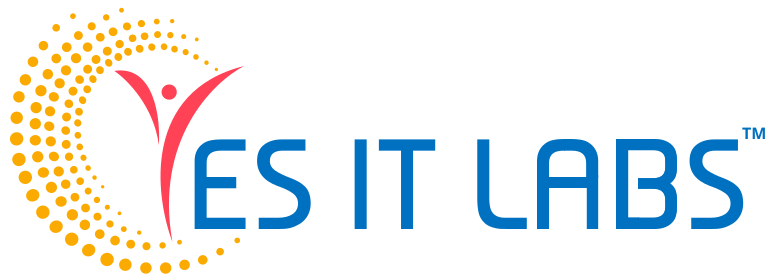Introduction
In the ever-evolving world of business, organizations are under constant pressure to enhance efficiency, reduce costs, and stay competitive. One strategy that has gained significant prominence in recent years is Business Process Outsourcing (BPO). This practice involves entrusting specific non-core functions to external service providers, allowing companies to focus on their core competencies. In this blog, we will delve into the world of Business Process Outsourcing, exploring its benefits, challenges, and its role in shaping modern business landscapes.
Understanding Business Process Outsourcing (BPO)
Business Process Outsourcing entails the delegation of specific business processes to specialized external partners. These processes can span various domains, including customer service, IT support, finance and accounting, human resources, and more. By outsourcing these functions, organizations can tap into the expertise of third-party providers, access advanced technologies, and streamline their operations without diverting their primary focus from core business objectives.
The Benefits of BPO
- Define Objectives: Clearly outline the objectives of outsourcing and identify the processes that can be delegated for maximum impact.
- Vendor Selection: Carefully choose a BPO provider that aligns with your business values, has a proven track record, and offers the required expertise.
- Effective Communication: Establish strong lines of communication and collaboration to ensure the outsourced functions align with your business strategies.
- Set Performance Metrics: Define key performance indicators (KPIs) to measure the success and effectiveness of the outsourced processes.
- Regular Evaluation: Continuously assess the performance of the BPO provider and make necessary adjustments to optimize outcomes.
Conclusion
In a world where adaptability and efficiency are key, Business Process Outsourcing has become an invaluable tool for businesses seeking growth and success. By strategically selecting partners, fostering effective communication, and maintaining a clear focus on core competencies, organizations can harness the power of BPO to streamline their operations, reduce costs, and achieve sustainable success in today’s dynamic business landscape.
- Data Security and Privacy: Sharing sensitive data with external parties raises concerns about data security and compliance with data protection regulations.
- Communication and Collaboration: Effective communication and collaboration between the company and the BPO provider are essential for successful outcomes.
- Loss of Control: Entrusting processes to external partners might result in a perceived loss of control over those functions.
- Quality Assurance: Ensuring consistent quality and performance from the BPO provider requires ongoing monitoring and oversight.
- Cultural Differences: Global outsourcing might involve working with teams from diverse cultural backgrounds, necessitating cultural understanding and sensitivity.
Strategic Approach to BPO: Partnering with the Right Provider
To make the most of Business Process Outsourcing, organizations should adopt a strategic approach:
- Define Objectives: Clearly outline the objectives of outsourcing and identify the processes that can be delegated for maximum impact.
- Vendor Selection: Carefully choose a BPO provider that aligns with your business values, has a proven track record, and offers the required expertise.
- Effective Communication: Establish strong lines of communication and collaboration to ensure the outsourced functions align with your business strategies.
- Set Performance Metrics: Define key performance indicators (KPIs) to measure the success and effectiveness of the outsourced processes.
- Regular Evaluation: Continuously assess the performance of the BPO provider and make necessary adjustments to optimize outcomes.
Conclusion
In a world where adaptability and efficiency are key, Business Process Outsourcing has become an invaluable tool for businesses seeking growth and success. By strategically selecting partners, fostering effective communication, and maintaining a clear focus on core competencies, organizations can harness the power of BPO to streamline their operations, reduce costs, and achieve sustainable success in today’s dynamic business landscape.
- Cost Efficiency: One of the primary reasons companies opt for BPO is cost reduction. Outsourcing eliminates the need for investing in infrastructure, technology, and training, allowing businesses to allocate resources more efficiently.
- Access to Expertise: BPO providers often specialize in specific areas, offering domain expertise that might not be available in-house. This can lead to improved process quality and enhanced customer experiences.
- Focus on Core Competencies: By outsourcing non-core functions, companies can redirect their efforts and resources toward activities that directly contribute to their core business goals.
- Scalability: BPO offers scalability, enabling businesses to quickly adapt to changing demands without the need for substantial internal restructuring.
- Time Savings: Outsourcing time-consuming tasks gives organizations the freedom to concentrate on strategic decision-making and growth-oriented initiatives.
- Risk Management: BPO providers often assume responsibility for managing certain risks associated with the outsourced processes, providing companies with added protection.
Challenges of BPO
While the benefits of BPO are evident, it’s crucial to acknowledge the potential challenges:
- Data Security and Privacy: Sharing sensitive data with external parties raises concerns about data security and compliance with data protection regulations.
- Communication and Collaboration: Effective communication and collaboration between the company and the BPO provider are essential for successful outcomes.
- Loss of Control: Entrusting processes to external partners might result in a perceived loss of control over those functions.
- Quality Assurance: Ensuring consistent quality and performance from the BPO provider requires ongoing monitoring and oversight.
- Cultural Differences: Global outsourcing might involve working with teams from diverse cultural backgrounds, necessitating cultural understanding and sensitivity.
Strategic Approach to BPO: Partnering with the Right Provider
To make the most of Business Process Outsourcing, organizations should adopt a strategic approach:
- Define Objectives: Clearly outline the objectives of outsourcing and identify the processes that can be delegated for maximum impact.
- Vendor Selection: Carefully choose a BPO provider that aligns with your business values, has a proven track record, and offers the required expertise.
- Effective Communication: Establish strong lines of communication and collaboration to ensure the outsourced functions align with your business strategies.
- Set Performance Metrics: Define key performance indicators (KPIs) to measure the success and effectiveness of the outsourced processes.
- Regular Evaluation: Continuously assess the performance of the BPO provider and make necessary adjustments to optimize outcomes.
Conclusion
In a world where adaptability and efficiency are key, Business Process Outsourcing has become an invaluable tool for businesses seeking growth and success. By strategically selecting partners, fostering effective communication, and maintaining a clear focus on core competencies, organizations can harness the power of BPO to streamline their operations, reduce costs, and achieve sustainable success in today’s dynamic business landscape.







